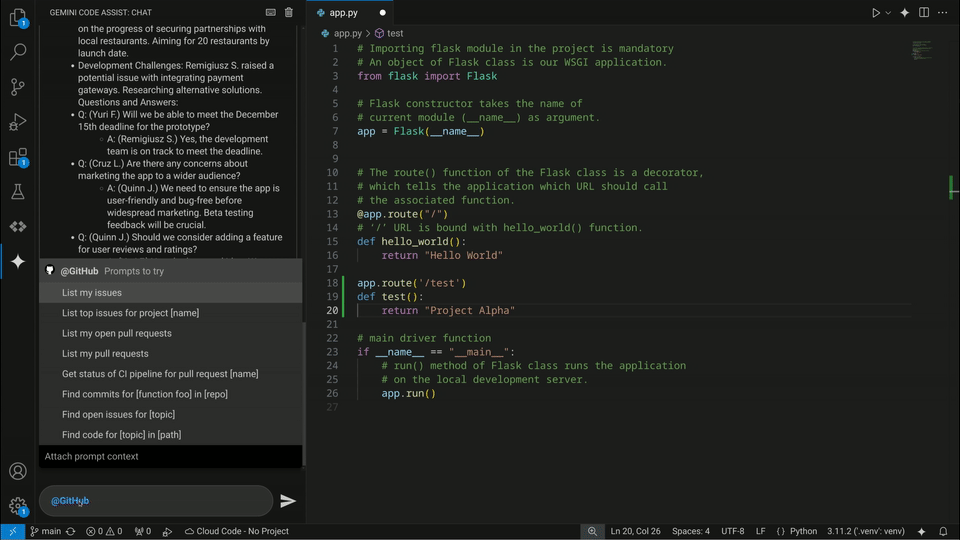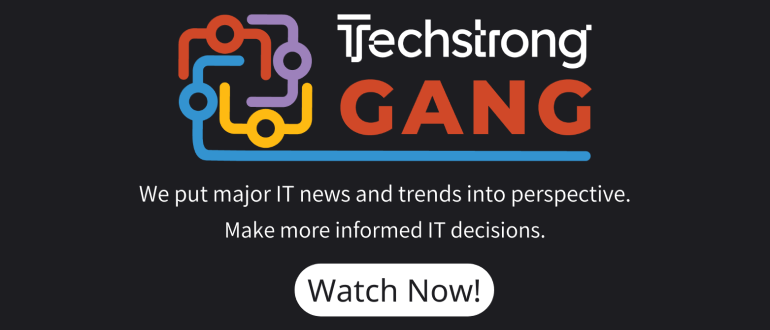Google today previewed a set of extensions to its artificial intelligence (AI) coding tools that are designed to be integrated directly within a development environment.
Based on the Gemini 2.0 Flash large language model that Google previewed last week, the Gemini Code Assist tools that are being added are designed to make it simpler for developers to both invoke and retrieve information from external sources.
Google Code Assist launch partners include Atlassian, GitHub, GitLab, Google Docs, Sentry.io and Snyk. Additional partners signaling their support for Gemini Code Assist tools include Dynatrace, New Relic, Black Duck, Harness, Aiven, DataStax, Elastic, MongoDB, Neo4j, Redis and SingleStore.
Those integrations, for example, will make it simpler to summarize recent comments from a Jira issue, find the last person who merged changes to a file in a Git repository or identify the most recent live site issue.
Any natural language command can be converted into a parametrized call to an application programming interface as defined by the OpenAPI standard or using a YAML file provided by a DevOps team. Those calls are then secured using the OAuth authentication framework.

Mitch Ashley, vice president and practice lead for DevOps and application development for The Futurum Group, said while much of the early AI focus has been on using these tools to generate code, most of the real productivity benefits will come from the ability to automate adjacent tasks, such as writing test plans, explaining code and verifying fixes have been properly installed.
A Techstrong Research survey finds a third (33%) are working for organizations that already make use of AI to build software, while another 42% are considering it. However, the survey also finds only 9% have fully integrated AI into their DevOps pipelines, while another 22% have partially achieved that goal. A total of 28% said they expect to integrate AI into their workflows in the next 12 months.
The survey makes it clear that in the coming year, the focus needs to shift well beyond simply making individual developers more productive, said Ashley.
Each organization will naturally adopt AI as they best see fit, but it’s no longer a question of whether to use AI as much as to what degree to rely on it. While AI coding tools make developers more productive, organizations need to make sure the code being created is thoroughly reviewed before incorporating it into a production environment. AI platforms were trained using samples of code of varying quality collected from across the web. In some instances, the code generated might therefore include a vulnerability that could be easily exploited. Conversely, depending on the skills of the developer, the code being generated might just as easily be of a higher quality than what might otherwise be created.
Regardless of approach, the one certain thing is developers will become more productive. Less clear, however, is whether that increase in productivity for individual developers will actually result in more higher-quality applications being built and deployed in production environments faster.



